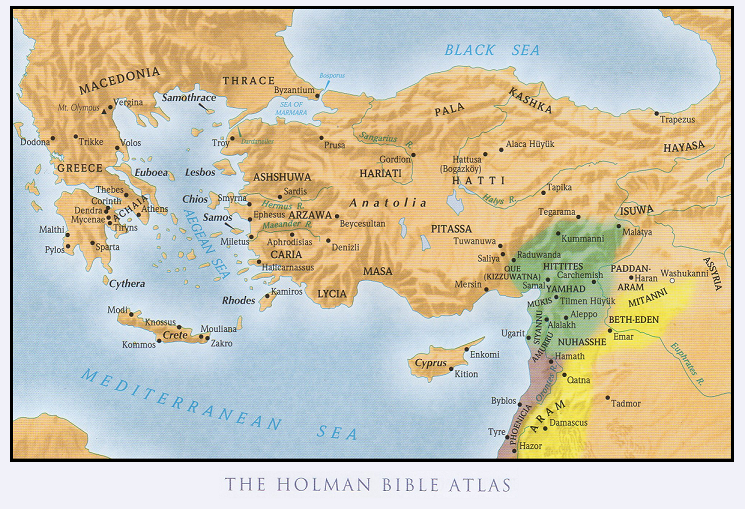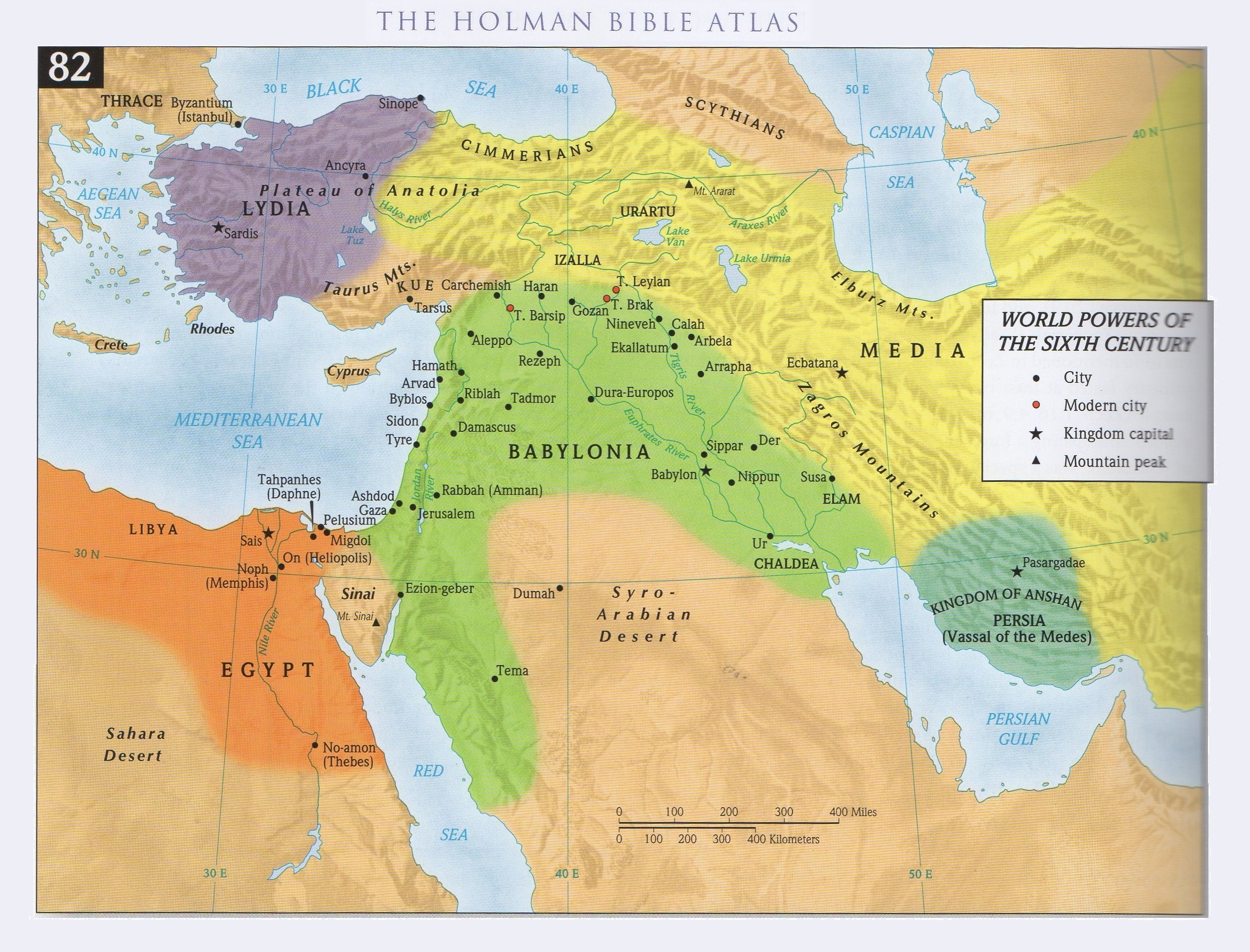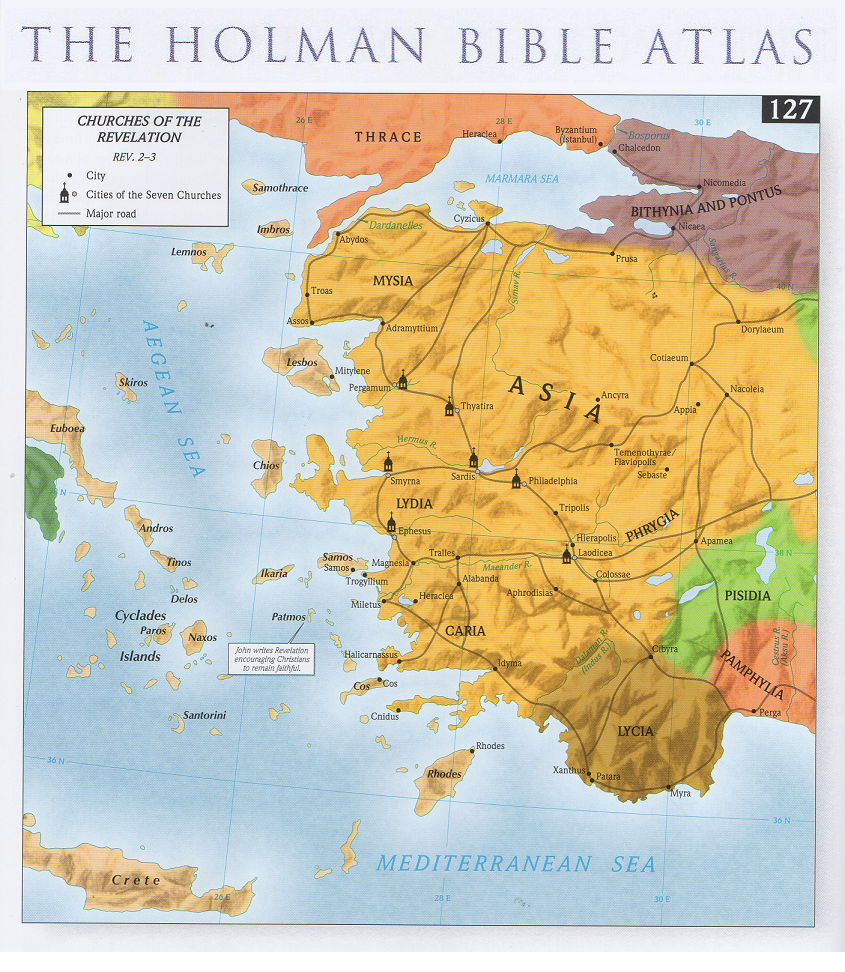Home
Study the Bible
Multimedia
About
Asia (Minor)


The area known as Asia Minor, known as modern-day Turkey, has seen various people groups pass through considering its proximity to Europe via the strait at Istanbul (formerly known as Constantinople). The western side of that strait became known as Thrace while the Anatolian plateau resided in the central region of Turkey.
Noah's Ark came to rest near the eastern border of Turkey, and later the Hittites who came from Ham's line via his son Heth resided there for a while. A people group called the Arzawa resided in western Asia Minor and interacted with the Egyptians as Hittite power waned. Arameans competed with Hittites and Canaanites for land in the region of Syria, south of Asia Minor.
During king Solomon's reign, he was stated as having traded with Kue (a region in southeastern Asia Minor) for horses (1 Kings 10:28).
After Solomon died, his kingdom began deteriorating and Egypt attacked Jerusalem "in the 5th year of Rehoboam", according to 1 Kings 14:25.
Assyrians under Shalmaneser III took land in the region of Asia Minor called Kue/Cilicia from a people group called the Nairi.

Assyria and Egypt tried to ally against the Babylonians, but Egypt was defeated at the battle of Carchemish in 605 B.C.
After the Babylonians came behind the Assyrians with their own armies, the Medes launched their own assault on Asia Minor,
but were kept in check by the Lydians who had their capital in Sardis.

The Persians followed, taking land all the way into the Aegean peninsula before the Greeks/Macedonians pushed them back across the strait.
The famous Trojan war was said to have taken place along the western coast near the Aegean Sea. Alexander the Great expanded his empire throughout Asia before the Romans took over most of the
same territory when Alexander died.
Two generic references to Asia appeared in Acts 2:9 and 1 Peter 1:1. As Revelation 4 shows, the Bible references the region in modern-day Turkey which was later known as Asia Minor (not the entire continent). The remaining occurrences referred to Asia as a Roman province. Mostly, the Bible recorded how the event of Pentecost opened the door to Christianity to that region.
Saul, later known as the apostle Paul, came from Tarsus in southeastern Asia Minor (Cilicia) near the Meditteranean Sea coastline. (See map above.)

The last biblical references to Asia appear when Paul wrote to the 7 churches in Revelation.